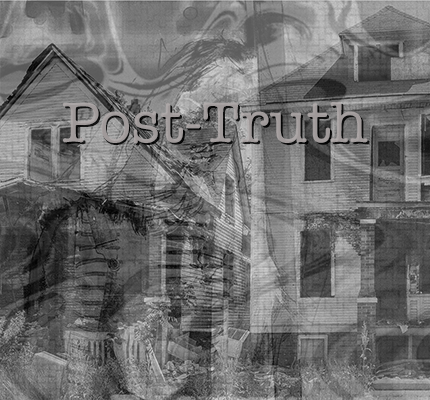
A (not-so) New Post-Truth World
In a recently published article in NCA’s journal Communication and Critical/Cultural Studies, North Dakota State University scholars Robert Mejia, Kay Beckermann, and Curtis Sullivan contend that we have been living in a post-truth era for a much longer period than popular wisdom suggests. Exploring “the racial amnesia that plagues much of our contemporary post-truth criticism,” Mejia et al. offer two case studies – American drug policy and American housing policy – to illustrate “(post)truth histories and materialities” in the United States. “Because of the general ignorance about the scholarship, literature, and experiences of people of color,” they write, “it is not surprising that so many of our post-truth critics think that the post-truth begins with the Internet; or more simply, American racial politics have never been concerned with the ‘truth.’”
Defining Post-Truth and Its Contributors
What exactly is “post-truth”? The Oxford English Dictionary defines it as “relating to or denoting circumstances in which objective facts are less influential in shaping public opinion than appeals to emotion and personal belief.” The authors note that the term wasn’t even listed in the OED until November 2016, and yet it became the word of the year only days after Donald Trump’s election. But they also say the concept of post-truth “should be considered old news from the perspective of critical cultural theory, which has long exposed the ideological bases of truth-making claims.”
The “newness” of post-truth has in large part been explained away by a lack of media literacy, which the authors say is troubling and warrants correcting. “Privileging media literacy over questions of ideology and power, however, makes post-truth scholarship and reporting complicit with post-race politics,” they assert. “Current scholarship and reporting often reproduces the myth that we once lived in an era of unproblematic truth, and consequently intersects with a neoconservative nostalgia for a post-racial past that never existed.” Put simply, the authors warn against oversimplifying post-truth criticism because it re-centers whiteness through the lens of nostalgia, which ignores “the uneven benefits and consequences of our historical and contemporary truth-telling regimes.”
"The wish to return to an era of truth is a wish to return to an era of uncomplicated whiteness."
Post-Truth and Drug and Housing Policies
The authors state that “American drug policy illustrates the problems associated with failing to recognize that whiteness and racism are irreducible to the (post)truth.” The disparity in arrests and criminal prosecution that leads Black Americans to be 6-10 times more likely than White Americans to be incarcerated for similar drug offenses reveals an American drug policy that “coincides with efforts to shore up the political, economic, and ideological security and respectability of whiteness.” They provide a set of six racist statements in support of stronger drug regulations made by journalists, politicians, and government officials to illustrate how whiteness and racism govern contemporary drug policy. To that end, the authors note that the “consequences of the post-truth are most severe for those communities lacking access to the very truth-telling institutions and practices that target them.”
The same issues exist within American housing policy and urban planning. The authors look at residential stability and homeownership and its correlation to voting in local elections, noting that a wide range of factors privilege White communities at the expense of Black communities, including proximity to polling stations, relationships with local council candidates and representatives, using social media as a primary means of civic communication despite reports that these platforms are exclusionary and plagued by racism, and more. The authors assert that American housing policy and urban planning have long “endorsed and cultivated” perceptions that are built on propaganda with a foundation in racism.
The authors conclude by urging journalists and academics to engage with the research on the history of racism. “It is troubling to suggest that we now live in a post-truth era when our history includes the three-fifths compromise, ongoing segregation, uneven drug policies, and other atrocities,” they write. “Racism is not the symptom of the post-truth. Rather, the post-truth is the symptom of racism.”




